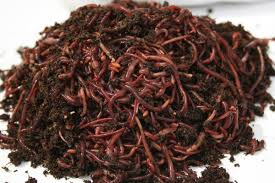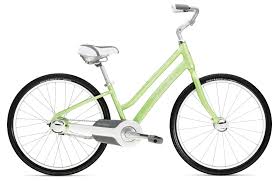
Some things are easy to explain, like why I put off a colonoscopy for several years – I think that I am like a lot of Americans. As a group we have always had an uneasy relationship with effluent – but I find it harder to explain why I did not promptly set up my worm farm. After all, it was the top item on my Christmas list. I wanted to make at least a token effort to reduce our sprawling carbon footprint by recycling our leftovers and all the newsprint that passes through our suburban house. In addition, the previous summer I had read the book The Earth Moved describing Charles Darwin’s interest in earthworms. I became transfixed with the breadth of Darwin’s intellectual curiosity, which included not only his drab finches in the Galapagos, the basis of his theory of evolution, but also beetles, barnacles, orchids, taxidermy and marine invertebrates. I wanted to tiptoe in Darwin’s footsteps and thought that a worm farm would be the best approach.

My starter kit consisted of a big black tub with holes on the side for ventilation, a primer on vermiculture, and a coupon for a batch of red-wrigglers. But despite my initial enthusiasm, my tub sat idle for several years while I came up with a litany of excuses for delaying the project – it was too hot, too cold, we were about to go on vacation, we had just come back from vacation. Yes, I wanted my worm farm to be a composting success and yes I looked forward to sharing Darwin’s interest, but my underlying fear was that the worms might die, that I was a poor steward. My track record with other living things was a cautionary tale. Ten years ago an attempt at an ant farm was a disaster. My ants from Uncle Milty’s never made a tunnel. In fact, they quickly rolled over and died with their delicate feet waving above them. Within three days the goldfish that the kids won at the church fair died. Five years ago the school guinea pig that we were taking care of during the summer got loose, made a mad dash and hid under the porch, staring at me with disdain as I tried to coax him out. Houseplants routinely go limp and turn brown.
These experiences have made me hesitant to be responsible for the care and feeding of anything other than my immediate family, no matter how low maintenance. However, when my family started pestering me about the black bin clogging up our mudroom, I knew it was time. I had put the worm bin on my Christmas list, my family complied and I had run out of excuses. I sent off the coupon and a little box of “red wigglers” arrived two weeks later.
Darwin was a great “noticer,” and his simple observations on the everyday habits of worms lead to many charming experiments. He noticed worms dragging leaves and twigs into their holes at night and wondered how intelligent they were. He set out paper triangles to see if worms would “decide” to drag the triangle by its apex so that it could be most easily pulled into their holes. They did. He wanted to know if worms could hear so he serenaded them with various instruments to see if they reacted. As he described his experiment,s I have an image of the elderly, bearded Darwin pottering around his garden on his hands and knees, bringing out one instrument after another to regale his worms.
“Worms do not possess any sense of hearing. They took not the least notice of the shrill notes from a metal whistle, which was repeatedly sounded near them; nor did they of the deepest and loudest tones of a bassoon. They were indifferent to shouts, if care was taken that the breath did not strike them. When placed on a table close to the keys of a piano, which was played as loudly as possible, they remained perfectly quiet. Although they are indifferent to undulations in the air audible to us, they are extremely sensitive to vibrations in any solid object. When the pots containing two worms which had remained quite indifferent to the sound of the piano, were placed on the instrument, and the note C in the bass clef was struck, both instantly retreated into their burrows. After a time they emerged, and when G above the line in the treble clef was struck they again retreated. Under similar circumstances on another night one worm dashed into its burrow on a very high note being struck only once, and the other worm when C in the treble clef was struck.”
Maybe I could duplicate his experiments, play my worms some music with my iPOD, but as soon as I opened my box I realized that I could never be a junior Darwin. He was dealing with large, plump earthworms, the kind that come to the surface after a heavy rain, the kind that seem cruel to use as fish bait. His worms had personality and charm. My red wrigglers were tiny, moving in one seething mass in their white container, which looked like a Chinese take-out box. I couldn’t even see the characteristic individual segments interrupted by that odd smooth part, which reminded me so much of a similar smoothness on my Grandmother’s furrowed lower lip. There was nothing to distinguish these worms. I might as well have been looking into a box of overgrown maggots.
I set aside my Darwin pursuits and refocused on my higher purpose of organic recycling. The recipe for starting the worm farm involved ripping up several pounds of newsprint, and then adding water and dirt, stirring until there was a big sodden mess. I dumped my worms in and spread them out a little bit with a fork. The directions said to leave the top open, since the worms’ aversion to light would encourage them to dive into the comfy nest that I had so lovingly made for them.
The next day I was eager to deposit the first wad of our vegetable leftovers. However I was appalled to see that my worms had not descended into the depths of the bin. All of them had migrated to the top and were trying to escape into the coat closet. My fears of inadequacy were coming true. Here I was, a woman who had managed to make it through four years of medical school and five years of residency. I was now a medical consultant whose clients sometimes said, “Could you please repeat that. And talk slowly, because I want to write down exactly what you are saying.” Now my ego had been shattered by the lowly worm, a sightless, spineless, and yes heartless creature. I stood there stunned. I had been disrespected by a box of worms. I snapped the lid closed, probably crushing a few of the wrigglers in the process. I didn’t care, I felt no obligation to be an ennobled steward of all of God’s precious children. I pressed ahead, fueled only by grim determination.
Some friends of ours were experienced worm farmers and wanted to know about my set up. Viv asked me, “what type of bin do you have, will it be easy to clean out the ‘juice’ at the bottom?” JUICE JUICE!! I could tell that juice was a euphemism for some sort of putrid swill and that Viv was trying to prepare me for the nitty gritty of a worm farmer. Apparently worm bins range in sophistication from a basic box to elaborate contraptions that separate the “juice” so that it can simply be poured off.

I discovered that my family had skimped and gotten me the cheapest bin, figuring that I could graduate to something more upscale if my initial efforts were a success. While this was a reasonable strategy, it meant that I would have to deal with worm effluent. Years ago I had made a vow that our household would have no pets that pooped inside, no birds, cats or rodents. But now I had inadvertently broken my vow. I feared the swill.
The end came swiftly one evening as I stood in front of our kitchen sink filled with unwashed dishes. This neglected chore has always irked me since this shared responsibility was so simple, far easier that inserting a new roll of toilet paper on the holder, or finding and putting in a new light bulb. Rinsing a dish only required a quick splish splash of water and then with a slight pivot to the right and bend of the waist, the plate could be deposited into that all-time great kitchen appliance, the dishwasher. I had subtly dropped hints that leaving unwashed dishes was disrespectful to the next person using the sink. When that strategy failed, I pinned a note on the splashboard above the sink that could not be ignored (but it was).
That night a plate with a thick smear of coalesced egg yolk sat in the sink. The simple splish splash rinse might have worked at breakfast, but not now, some 10 hours later. I segued to a scrub brush, and then manually picked off the last fleck of yellow, which embedded under my fingernail. When I opened the dishwasher, I saw that it was full of clean dishes. So the breakfast egg eater had 1) not rinsed and 2) had not emptied the dishwasher, leaving these chores to the sucker now standing at the sink. I burst into tears. I knew that I needed to regain power and take decisive action somewhere. I suppose I could have convened a hasty family tribunal, assign blame along with a punishment that would set an example, but everyone was already in bed.
But I just had to do something. There was no way I could go to sleep until I vented some of my frustration. I wandered around the house fuming and then my eyes lit upon the worm bin. Here was something I could control and perhaps exact some revenge for my worms’ prior disrespect. Grabbing a flashlight, I carried the bin outside. With one big heave ho and a sigh of satisfaction, I dumped the entire thing into the weeds alongside the driveway and then shook any juice out. The red wrigglers had never liked my bin anyway. I was only too happy to set them free, this was what they wanted after all. Too bad it was winter.
As I walked back to the garage I thought of other ways of honoring Darwin. Perhaps a cruise to the Galapagos.
Follow Liza Blue on:

Share:













